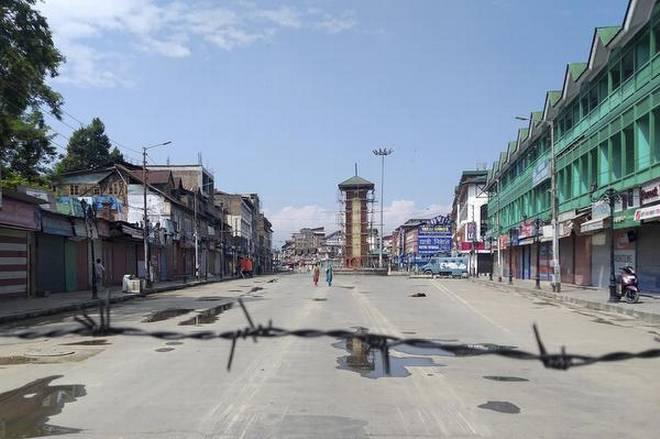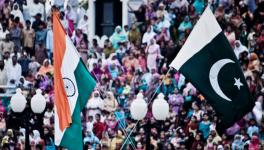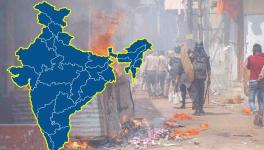J&K: A Year After Article 370’s Abrogation, Local Government Dis-empowered in Erstwhile State

The euphoric reverberations sounded by the Bharatiya Janata Party (BJP) and its cohorts, immediately after the shredding of Article 370 of the Constitution of India, did not last for long. August 5, 2020, will mark a year of the dismantling of the erstwhile state into two Union Territories – Ladakh and Jammu & Kashmir. Back then, there was jubilation in the BJP’s camp and its leaders explicitly made statements that it was the turn of POK (Pakistan Occupied Kashmir) and Aksai Chin to be fully integrated with India; to them Article 370 was a hurdle in the integration of J&K to the Indian State.
The strategy that the government had adopted was to muzzle the voices of people and subject the leadership of major political parties to detention. Primarily, these were leaders who have backed J&K’s integration to the Indian State. Former chief ministers, ministers, sitting MPs and former MLAs of the J&K legislative assembly were arrested or put under house arrest. The prominent among them include Mehbooba Mufti (still in detention), Farooq Abdullah and his son Omar Abdullah, Mohammad Yousuf Tarigami and Saifuddin Soz. Along with them were thousands of people including lawyers, civil society activists and journalists, who were kept in detention for a long time.
The second part of the strategy was to win over a section of the people, especially those elected to local bodies. The plan was to replace erstwhile mainstream political leaders with them and project them as true representatives of the people. Mainstream political parties and their leadership were discredited through an incessant campaign unleashed by the BJP and its IT cell. One of the salvos was that a few ruling families had usurped all the benefits of special status to Kashmir and have amassed phenomenal wealth – that most of the Centre’s grants were taken by them.
To aid this seeming problem, a delegation of elected local bodies was mobilised, and they met Home Minister Amit Shah before the pandemic began. Shah had emphatically stated that the dividends of democratic governance were missing in Kashmir as the 73rd and 74th Constitutional amendments were not implemented in the state. Shah said that with the nullification of J&K’s Constitution, local bodies will be strengthened and will be able to govern themselves democratically. This is an absurd argument as I have written about in these columns during the time the delegation met Shah. The columns detail how the erstwhile state of J&K had imbibed both the amendments and had incorporated them in their local bodies’ acts.
A year after Article 370 was confined to history, it is pertinent to examine the changes in local bodies in J&K and Ladakh.
“Nothing has happened.” These are the affirmative words of Talib Hussain, one of the delegates who had met Shah. Talib is the President of the Block Development Council at Shangas in Anantnag. He said that no efforts have been made to rejuvenate the local body’s governance and that this government is more of a tamasha (pageant) which is being run by the bureaucrats. He said they are being treated as praja and the raja (subjects and the ruler) is sitting in Delhi and sermonising. “We lost a sense of citizenry as the year passed by,” he said. Despite being at the helm of the BDC, all the decisions are taken by the bureaucracy, he said. There is no devolution of power. Talib pointed out that hand-picked people with no credibility are being promoted by the BJP. He said that nearly five lakh forms were filled for 6,000 group IV posts, showing signs of unemployment in the state. Whatever they had as resources, Talib pointed out, is also leaving their grasp. The people of Jammu, who initially welcomed the change in status, are now repenting for taking such a stance. He said the new domicile law is also affecting those in Jammu.
The most scathing indictment of the administration’s one-year rule came from Khursheed Malik, a former panchayat chairperson, who unsuccessfully contested the assembly elections for the BJP from the Kashmir Valley. Khursheed said the last year has been a sham for local body governance, even if that is what the BJP wanted to promote to counter the mainstream parties. The BJP has virtually ruled of J&K over the last two years; the first under the governor and the last year under the LG. The abysmal participation of local body representatives in electing the council recently, shows that the BJP has messed up badly. He said that there was no moral authority that prevails in the valley.
Pointing out what moral authority meant, Khursheed said that during former CM Omar Abdullah’s tenure, there was 85% participation in the local bodies’ polls. An imminent change seemed forthcoming with such a large participation in the political process. He said during that period, separatists had pasted firmans (an edict) on the doors of elected representatives of the local bodies, saying they had to quit. Khursheed said a large number of elected representatives resisted such diktats and even protested in Srinagar against such despotic orders of the separatists. This was a direct attack on the Hurriyat and others; the representatives continued to serve the people. The people also endorsed their own will and supported the local representatives as they were elected by them with a huge mandate. Khursheed added that all of that has been nullified by the BJP.
After the change in status and the nullification of the J&K Constitution, local bodies in the region have lost their status. Khursheed said that lies are being spread in the country and even those who stood by the Indian nation have been badly ridiculed. Speaking about the fear which the BJP has created, he pointed out that there were problems even with previous regimes, but at least they could raise their voices fearlessly. When he was elected panchayat chairperson he said he openly criticised Rahul Gandhi for his politics in Kashmir that in a meeting. He added that after voicing his criticism, he was offered a space for a hearing – whereas under the present rule such criticism would mean a sedition charge.
Doctor Ishey Namgyal, President of the Leh Municipal Council said that there was jubilation in Ladakh initially, but a year later, there are more fears than cheers. He said there is no clarity on what will happen to the domicile issue and to land protection laws that they have enjoyed for long. Speaking about the 15th Finance Commission recommendations, Namgyal said no money has been awarded to the local body as yet. He added that decisions are taken at the behest of the bureaucracy and that elected bodies are not even engaged in the process. He warned that the changes brought into land and domicile issues will flare up a movement towards alienation akin to that in the north-eastern part of India, as people have started to lose faith in BJP rule.
The BJP may be celebrating the past year and showcasing it as a testament to its pro-nationalist agenda, but on the ground, the reality is that the party and the government have failed miserably. Trying to impose other leaders aside, the people of the region have lost faith – both, in resources and in their right to be a citizen of this country.
The writer is former deputy mayor of Shimla. The views are personal.
Get the latest reports & analysis with people's perspective on Protests, movements & deep analytical videos, discussions of the current affairs in your Telegram app. Subscribe to NewsClick's Telegram channel & get Real-Time updates on stories, as they get published on our website.
























